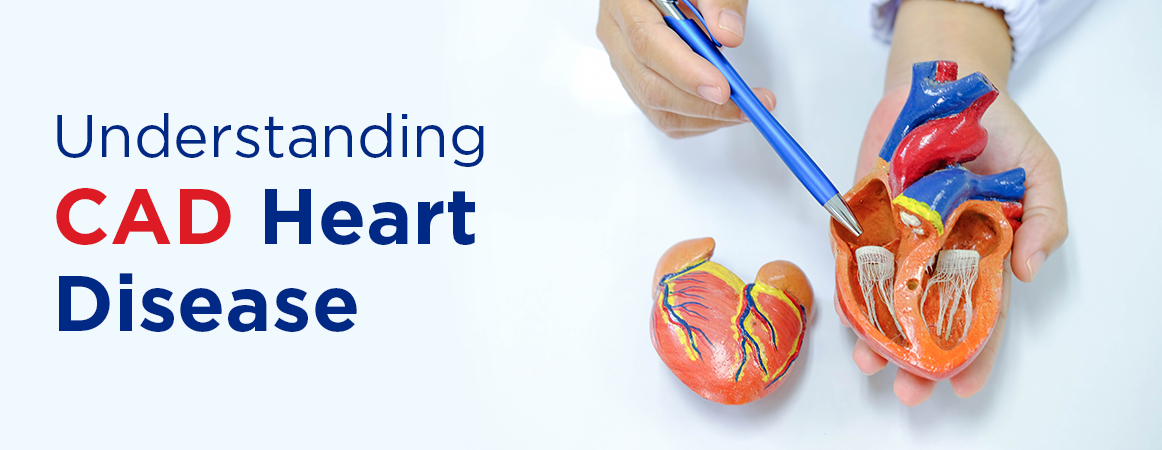Understanding CAD Heart Disease
Coronary Artery Disease (CAD) is a prevalent heart condition caused by narrowed arteries, leading to reduced blood flow and potential complications. As the leading cause of heart-related complications, CAD demands a closer look to comprehend its intricacies and potential consequences.
What is CAD?
Coronary Artery Disease, often referred to as coronary heart disease, occurs when the blood vessels supplying oxygen and nutrients to the heart muscles become narrow or blocked. This narrowing is usually a result of the accumulation of plaque, composed of cholesterol, fat, and other substances. Over time, the restricted blood flow to the heart can lead to chest pain (angina) and, in severe cases, heart attacks.
Causes of CAD:
Understanding the root causes of CAD is crucial in preventing and managing the condition. The primary contributors include:
- Atherosclerosis: Atherosclerosis is the buildup of plaque in the arteries, leading to their hardening and narrowing. This process is a gradual one, often developing over several years, and can eventually result in CAD.
- Risk Factors: Certain risk factors increase the likelihood of developing CAD. These include high blood pressure, smoking, diabetes, obesity, and a sedentary lifestyle. Genetic factors may also play a role in predisposing individuals to this condition.
Symptoms of CAD:
Recognizing the symptoms of CAD is vital for early detection and intervention. Common signs include:
- Angina: Angina manifests as chest pain or discomfort and may spread to the arms, neck, jaw, shoulder, or back. It happens when the cardiac muscle is deprived of an adequate supply of oxygen-rich blood.
- Shortness of Breath: CAD can lead to difficulty breathing, especially during physical activities or moments of stress. This symptom may indicate compromised heart function.
- Fatigue: Individuals with CAD often experience persistent fatigue, even after minimal exertion. This has the potential to impact everyday tasks and the overall quality of one’s life.
If you or your loved ones experience any of the above-mentioned symptoms, it is imperative to seek immediate medical attention. For unparalleled cardiac care don’t hesitate to head to MMI Cardiac Hospital, Karachi. Our expert cardiologists and state-of-the-art facilities are dedicated to providing timely and comprehensive care to ensure the best possible outcomes for your heart health.
Diagnosis of CAD:
Timely and accurate diagnosis is crucial in managing CAD effectively. Top cardiologists in Karachi employ various diagnostic tools and tests, including:
- Electrocardiogram (ECG or EKG): This test records the heart’s electrical activity and can detect abnormal rhythms indicative of CAD.
- Stress Testing: Stress tests evaluate the heart’s performance under physical stress, helping identify any abnormalities or reduced blood flow.
- Coronary Angiography: This imaging technique involves injecting a contrast dye into the coronary arteries, allowing doctors to visualize blood flow and identify blockages.
Treatment Options:
CAD management involves a multifaceted approach aimed at alleviating symptoms, slowing disease progression, and reducing the risk of complications. Treatment options include:
- Lifestyle Modifications: Embracing a lifestyle that promotes heart health is essential. This includes regular exercise, a balanced diet low in saturated fats and cholesterol, smoking cessation, and maintaining a healthy weight.
- Medications: Medications such as statins, antiplatelet drugs, and beta-blockers may be prescribed to control cholesterol levels, prevent blood clots, and manage blood pressure.
- Interventional Procedures: In severe cases, interventional procedures like angioplasty and stent placement may be recommended to open narrowed arteries and restore blood flow to the heart.
Access to top-notch cardiac care is essential. Recognizing the importance of seeking guidance from experienced cardiologists and a reputable cardiology hospital like MMI can make a significant difference in the management of CAD.
When it comes to seeking expert advice for CAD, consulting with the top cardiologist in Karachi is paramount. These professionals are equipped with the knowledge and experience to provide personalized care and guide patients through the intricacies of managing CAD.


